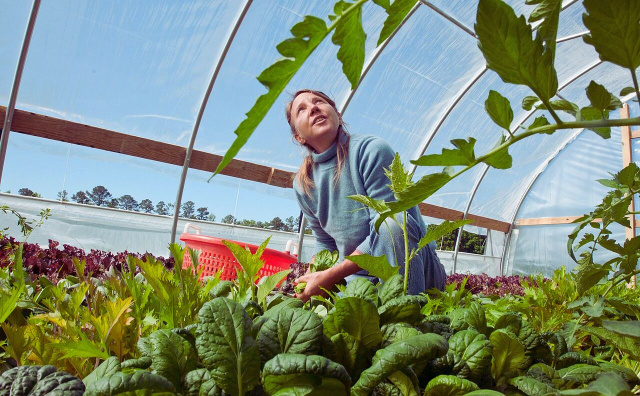
Bulgaria has claimed one of Europe’s most prestigious farming titles this year, as Albina Yasinskaya was named the European Union’s Top Female Organic Farmer for 2025.
Yasinskaya owns and manages “Rozino,” an organic farm founded in 2012 in the scenic Rose Valley. Known for its innovative approach, the farm operates a fully closed production cycle, covering every step from raising livestock to processing and selling finished organic products.
The award, announced by the European Commission and partner institutions, highlights the best examples of sustainable and environmentally friendly farming across the continent. Yasinskaya’s recognition comes just a year after Bulgaria was represented by finalist Blagovesta Vasilieva, showing the country’s growing influence in Europe’s organic sector.
Yasinskaya faced strong competition, securing the top honor against female farmers from France and Finland. Her farm impressed the judging panel with its ability to integrate eco-friendly practices while remaining economically viable. The closed-cycle model minimizes waste and maximizes efficiency, aligning with EU sustainability goals.
The European Union’s organic farming awards span six categories, celebrating farmers, businesses, and communities that demonstrate excellence in sustainability, biodiversity, and organic innovation. By earning the top female farmer award, Yasinskaya not only shines a spotlight on Bulgaria’s farming potential but also sets an inspiring example for women in agriculture.
Speaking after the announcement, EU representatives emphasized that Yasinskaya’s work underscores the importance of combining tradition with modern ecological methods. “Rozino” farm’s holistic approach, they noted, represents the kind of farming Europe needs to encourage as it strives toward its Green Deal targets.
For Bulgaria, the recognition is a milestone. Agriculture remains a crucial part of the nation’s economy, and awards of this scale bring international attention to local innovation. Experts believe that Yasinskaya’s success will encourage more Bulgarian farmers to adopt organic practices.
Her achievement also contributes to broader conversations about gender equality in farming. Women remain underrepresented in European agriculture, but Yasinskaya’s recognition illustrates how female leadership can drive progress in sustainable food production.
With organic food demand continuing to rise across Europe, the success of farms like “Rozino” reflects both environmental responsibility and economic opportunity. Yasinskaya’s award is not just a personal victory—it’s a win for Bulgaria’s agricultural identity and the future of organic farming in the European Union.
